People Children
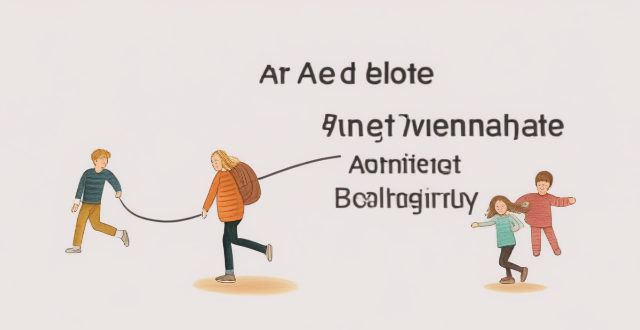
Can children get vaccinated against COVID-19 ?
Children are eligible for COVID-19 vaccination based on their age and health status. The Pfizer-BioNTech vaccine is authorized for children aged 5-11, while both the Pfizer-BioNTech and Moderna vaccines are authorized for those aged 12-17. Children with no history of severe allergic reactions or other health conditions that may increase the risk of adverse reactions to the vaccine are generally considered suitable candidates. Vaccinating children can help protect them from contracting the virus and developing symptoms, reduce the risk of severe illness and complications, and contribute to achieving herd immunity. While there are potential risks and side effects associated with vaccination, they are generally outweighed by the benefits. Parents should consult with their child's healthcare provider to determine if vaccination is appropriate for their child.

How can parents promote healthy developmental milestones in their children ?
This article provides tips for parents on how to promote healthy developmental milestones in their children, including providing a stimulating environment, encouraging social interaction and physical activity, teaching self-care skills, and fostering independence.

What initiatives are being taken globally to include children in climate action planning ?
Including children in climate action planning is crucial for several reasons. Firstly, it acknowledges their rights and provides them with a platform to voice their concerns about the environment. Secondly, it encourages intergenerational dialogue and collaboration, which can lead to more effective solutions. Finally, involving children in climate action planning helps them develop critical thinking skills, empathy, and a sense of responsibility towards the planet. Here are some initiatives that are being taken globally to include children in climate action planning: 1. UNICEF's Child-Friendly Cities Initiative 2. The Global Kids Climate Forum 3. The Youth4Climate Movement 4. The Fridays for Future Movement 5. The Climate Change Education Programme (CCEP) 6. The Earth Guardians Programme 7. The Eco-Schools Programme 8. The Children's Climate Prize 9. The Global Youth Biodiversity Network (GYBN) 10. The Youth Environmental Leadership Programme (YELP)
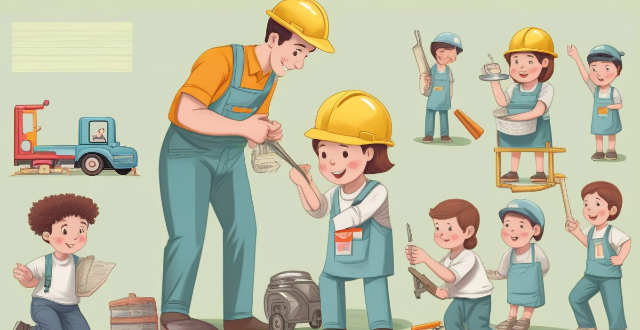
How can parents effectively teach their children about safety ?
Teaching children about safety is crucial for their well-being. Parents can effectively teach their children about safety by establishing clear rules, educating them about potential dangers, practicing safety drills, encouraging open communication, and modeling safe behavior. By doing so, children will develop awareness and the ability to protect themselves from potential dangers.

How do I provide for minor children in my estate plan ?
When it comes to estate planning, one of the most important considerations is how to provide for your minor children. Here are some steps you can take to ensure that your children are taken care of financially and emotionally after you're gone: Create a will or trust, name a guardian, establish a trust fund, consider life insurance, and make sure your beneficiaries are up-to-date.
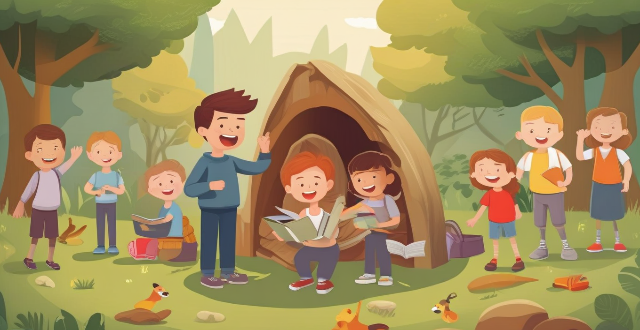
How can children be encouraged to speak up if they feel unsafe ?
The article emphasizes the importance of creating a safe and supportive environment for children to express themselves without fear of judgment or criticism. It suggests educating children about personal safety, role-playing different scenarios, and discussing potential consequences of not speaking up if they feel unsafe. The article also recommends teaching children who to trust, encouraging them to use their voice, and providing options for seeking help. Overall, it highlights the significance of empowering children to take action and advocate for their own safety.
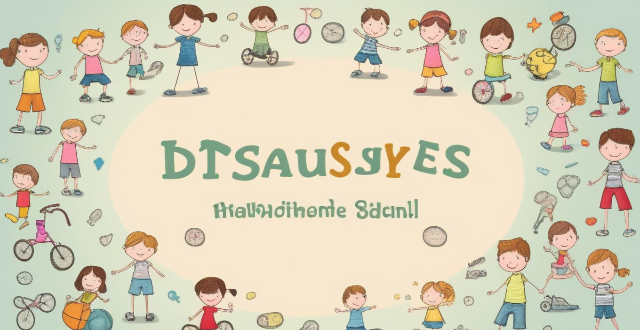
What role do sports play in character building for children ?
The article discusses the various ways in which sports contribute to the overall personality development of children. Sports ensure physical health and well-being, teach valuable life skills such as teamwork, leadership, communication, and goal setting, impact emotional development by boosting self-esteem, teaching resilience, and handling pressure, provide opportunities for socialization, and play a crucial role in moral development by instilling values such as integrity, respect, and responsibility. The author concludes that sports are not just about physical fitness but are powerful tools for character building in children.
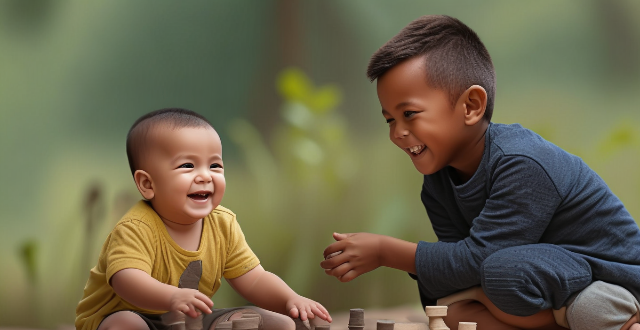
What role do children play in combating climate change ?
The article emphasizes the pivotal role children can play in combating climate change. They can contribute through education and awareness, innovation and creativity, advocacy and action, and by making sustainable lifestyle changes. By empowering children to understand and act on climate issues, we can ensure a more sustainable future for all.

What are some effective ways to teach children about climate change ?
Teaching children about climate change is crucial for their future and the planet's well-being. Here are some effective ways to educate them on this important topic: 1. Use age-appropriate language that they can understand, avoiding complex scientific terms. 2. Incorporate interactive learning through games or experiments that demonstrate the effects of climate change. 3. Discuss real-life examples of climate change, such as extreme weather events like hurricanes, floods, and droughts. 4. Encourage critical thinking by asking open-ended questions about climate change and encouraging problem-solving skills. 5. Involve children in solutions by participating in community clean-up events, planting trees, or reducing energy consumption at home. 6. Integrate technology through educational apps, videos, and websites that provide engaging and informative content on climate change. 7. Foster empathy for nature by encouraging children to spend time outdoors and appreciate the beauty of the natural world. By using these effective methods, we can help children understand the importance of protecting our planet and inspire them to take action against climate change.
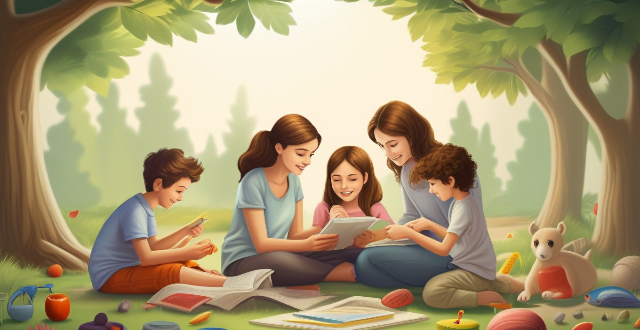
How can parents encourage their children to develop new skills through interactive activities ?
The article provides strategies for parents to encourage their children's skill development through interactive activities. It emphasizes the importance of hands-on, engaging learning experiences and offers specific tips for creating a supportive environment, involving children in planning, modeling behavior, offering praise, making learning fun, allowing for trial and error, providing practice opportunities, connecting learning to real life, and being patient and persistent. The goal is to help children become well-rounded individuals who are motivated and equipped for future challenges.

What are some of the best sports movies for children ?
Sports movies can inspire children to be active, learn teamwork, and develop a love for sports. Here are some of the best sports movies for children: The Sandlot (1993), Miracle (2004), Cool Runnings (1993), Remember the Titans (2000), The Blind Side (2009), A League of Their Own (1992), Coach Carter (2005), The Bad News Bears (1976), Space Jam (1996), Million Dollar Arm (2014).

How can parents balance work and home teaching strategies for their children ?
Parenting in the modern era is a challenging task, especially when it comes to balancing work responsibilities with home teaching strategies for children. Here are some tips: - Set priorities by identifying what is most important and allocating time accordingly. - Create a routine that provides structure and predictability for both parents and children. - Utilize technology as a tool for supplementing learning outside of traditional school hours. - Involve children in household chores to teach them valuable life skills while also freeing up more time for parents. - Seek support from others such as grandparents, babysitters, or other family members who are willing to lend a hand.
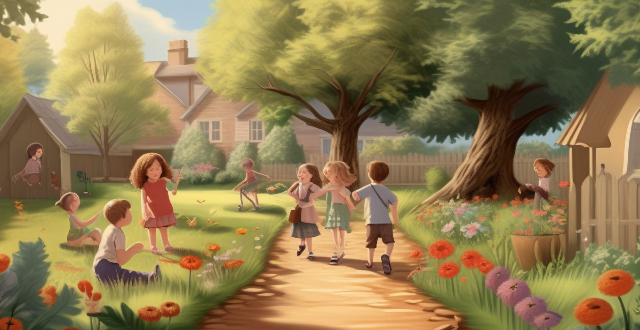
What are the psychological impacts of climate change on children ?
The psychological impacts of climate change on children can be significant and far-reaching, including anxiety and fear, a sense of helplessness, loss of connection to nature, trauma, and grief and mourning. It is essential for parents, educators, and mental health professionals to recognize and address these impacts to support the mental health and well-being of children affected by climate change.